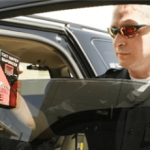International Travel: Cash Reporting Requirements
Understanding U.S. Cash Disclosure Requirements
Under U.S. law, anyone leaving or entering the country with more than $10,000 in currency or "monetary instruments" must file a report with CBP using Form FinCEN 105. This form is designed to track the movement of large sums of money and to help combat money laundering, drug trafficking, and other illicit activities.
What Counts as "Monetary Instruments"?
Monetary instruments include more than just cash. According to CBP, they cover:
- U.S. or foreign currency.
- Traveler’s checks.
- Negotiable instruments (e.g., personal checks, cashier’s checks) that are either endorsed or made out to a bearer.
- Securities or stocks in bearer form.
- Certain types of prepaid access devices, like preloaded debit cards.
Physical goods such as gold, silver, or jewelry do not qualify as monetary instruments, though their value may be subject to other customs declarations.
Why $10,000?
The $10,000 threshold stems from the Bank Secrecy Act (BSA) of 1970, a law aimed at detecting and preventing financial crimes. By requiring disclosure, the U.S. government seeks to create transparency for large cash movements, discouraging attempts to evade financial reporting systems and helping law enforcement trace illegal financial networks.
The Process of Declaring Cash
When and How to File FinCEN 105
Travelers carrying over $10,000 must submit Form FinCEN 105 before departing from or arriving in the U.S. The form is straightforward and asks for:
- Personal identification details (name, address, and contact information).
- Details about the monetary instruments, including type, total value, and currency.
- The purpose of the funds and their origin.
The form can be submitted electronically through the CBP website or physically at the port of entry or departure. CBP officers are trained to assist travelers with the process.
What Happens If You Declare Cash?
Declaring cash is not illegal, nor does it automatically subject you to scrutiny. CBP officers may ask additional questions to verify the legitimacy of the funds. For example, they might inquire about why you're carrying such a large sum or where the money came from. As long as the funds are legitimate and the form is correctly filed, travelers are free to continue their journey.
Penalties for Failing to Declare Cash
Failing to disclose amounts over $10,000 or filing inaccurate declarations can have serious repercussions, including:
- Seizure of Funds: CBP has the authority to confiscate undeclared money, even if it is legally obtained.
- Fines and Penalties: Violations can result in fines, sometimes exceeding the amount of undeclared cash.
- Criminal Charges: Intentional misrepresentation or repeated violations can lead to criminal prosecution, carrying potential imprisonment.
Even inadvertent violations—such as forgetting to declare cash—may not excuse travelers from these consequences.
Challenging a Seizure
If cash is seized, travelers have the right to challenge the action. This typically involves:
- Filing a petition with CBP explaining why the funds should not be forfeited.
- Requesting a hearing or judicial review.
- Providing documentation to prove the money’s legitimate source and intended use.
Seeking legal counsel experienced in customs law can be crucial in these cases.
Enforcement Practices at U.S. Borders
CBP officers, in collaboration with other agencies like the DEA and FBI, are trained to spot red flags during passenger screenings. These red flags might include nervous behavior, inconsistent answers to questions, or discrepancies in travel documents. Officers may ask travelers how much money they are carrying as part of routine screening procedures, especially for those flagged for secondary inspection.
The Role of TSA in Cash Reporting
Although the Transportation Security Administration (TSA) does not directly enforce cash disclosure laws, it plays an important role in identifying large sums of money during security screenings. TSA agents may report significant amounts of cash to CBP, particularly if they suspect criminal activity. Travelers should be aware that carrying large amounts of cash can draw TSA’s attention, even if it is entirely legal.
Common Misconceptions About Traveling with Cash
- “I Can Avoid Disclosure by Splitting Cash Among Travel Companions”
Splitting cash between multiple individuals traveling together does not exempt anyone from disclosure requirements. CBP considers the total sum carried by a group when determining whether the $10,000 threshold is met. - “Disclosure Only Applies to Outbound International Flights”
The rules apply equally to travelers entering and leaving the U.S. Anyone carrying over $10,000 across the border must file Form FinCEN 105, regardless of the direction of travel. - “Non-Cash Forms of Value Aren’t Subject to Declaration”
While physical goods like gold are not considered monetary instruments, other financial instruments, such as endorsed checks or prepaid cards, must still be declared.
The Global Context: How U.S. Rules Compare
The U.S. is not alone in requiring cash disclosures for international travelers. Many countries impose similar regulations, although thresholds and enforcement practices vary. For instance:
- European Union: Travelers entering or leaving the EU must declare amounts exceeding €10,000.
- Canada: The disclosure threshold is CAD 10,000.
- Australia: Travelers carrying AUD 10,000 or more must report to customs officials.
Understanding the rules of your destination country is just as important as complying with U.S. regulations.
Tips for Travelers Carrying Large Amounts of Cash
- Plan Ahead
If you anticipate carrying over $10,000, complete Form FinCEN 105 in advance to avoid delays at the airport. - Be Transparent
Honesty is the best policy. Answer CBP officers' questions truthfully and provide accurate details about your funds. - Carry Documentation
Bring supporting documents, such as bank statements, invoices, or contracts, to demonstrate the legitimacy of your funds. - Consider Alternatives
If carrying large amounts of cash isn’t essential, explore safer options like wire transfers, traveler’s checks, or preloaded cards. - Seek Legal Advice
If your funds are seized or you face penalties, consult an attorney experienced in customs and forfeiture law to protect your rights.
Real-World Implications and Controversies
Impact on Travelers
The cash disclosure requirements aim to deter financial crimes, but critics argue they can unfairly target legitimate travelers, particularly those from cash-based economies or individuals who prefer not to rely on electronic transactions. Stories of innocent travelers losing their life savings due to minor paperwork errors highlight the stakes involved.
Civil Asset Forfeiture Concerns
Critics also point to the broader issue of civil asset forfeiture. In some cases, CBP officers seize cash without filing criminal charges, leaving travelers to navigate a complex legal process to reclaim their money. This practice raises questions about due process and accountability.
Balancing Security and Privacy
While the intent of cash disclosure laws is to enhance national security, they also raise concerns about privacy. Travelers must disclose personal financial details, which some view as an overreach by the government.
Conclusion
Understanding and complying with cash disclosure requirements is essential for international travelers leaving or entering the U.S. By following the rules, completing the necessary paperwork, and being prepared to answer questions, travelers can minimize the risk of complications. However, ongoing debates about enforcement practices and civil liberties highlight the need for continued scrutiny of these regulations. Whether you’re carrying cash for business, family support, or personal use, knowing your rights and responsibilities can make all the difference in ensuring a smooth journey.






